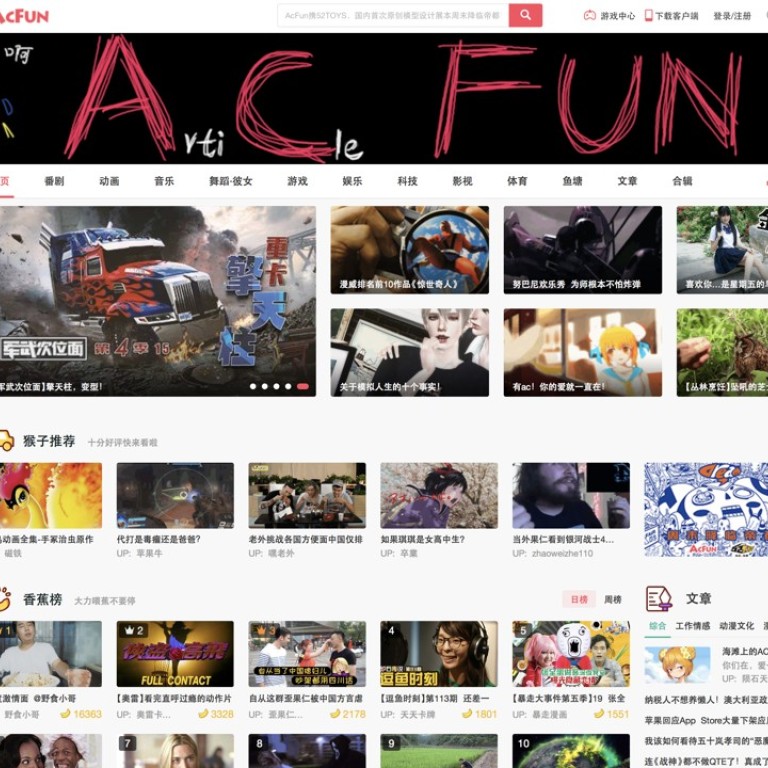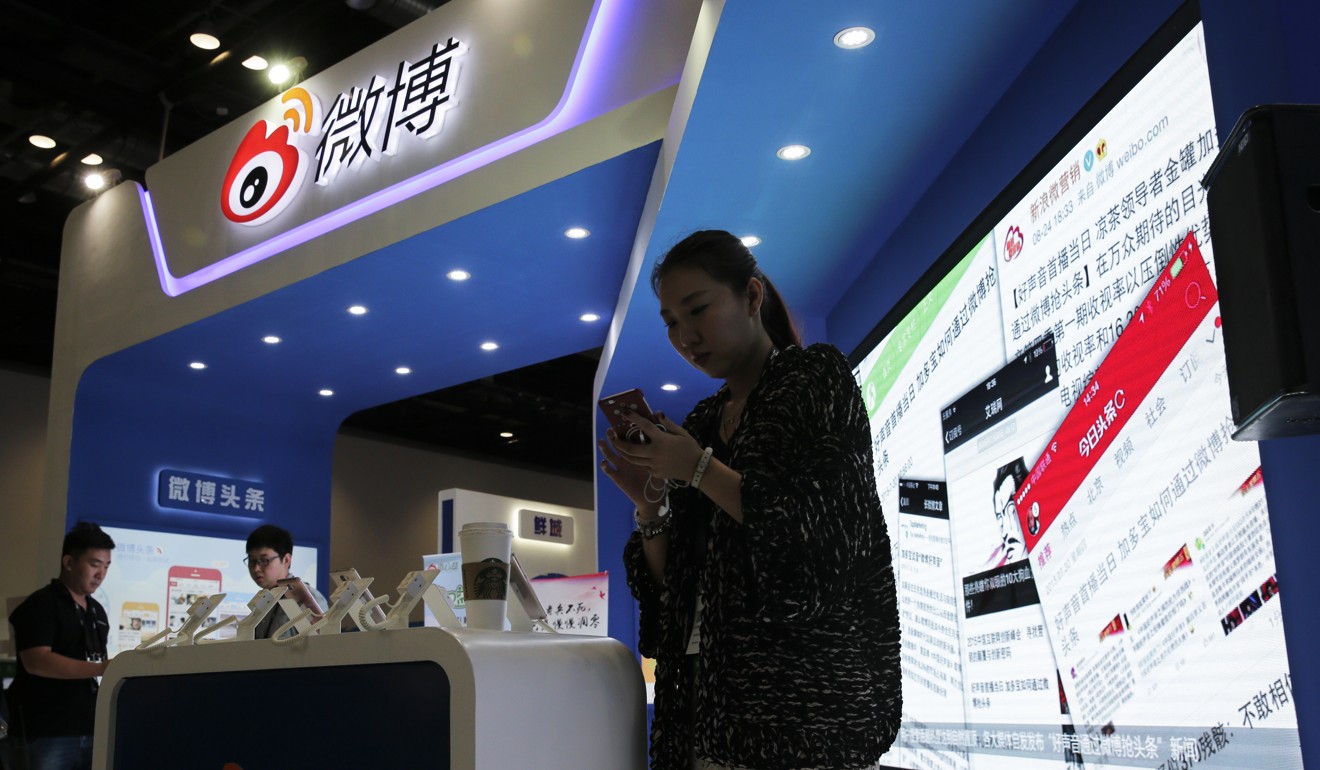
Chinese online video programmes told to get a licence or pull the plug
Three popular websites ordered to stop broadcasting unlicensed current affairs content that the media regulator says ‘spreads negative comments’
Beijing has tightened restrictions on video and audio current affairs programming on the internet – an area said to be posing a big headache for censors – requiring all broadcasters to hold a licence.
The media regulator has told three popular websites – the Twitter-like Sina Weibo, video sharing site AcFun and Phoenix New Media’s news portal iFeng.com – to immediately stop broadcasting unlicensed video and audio content.
In a brief statement on Thursday, the State Administration of Press, Publication, Radio, Film and Television said the websites had been broadcasting a “large amount of audio and video programmes that comment on current affairs and spread negative comments”.
On the Nasdaq stock exchange in New York, shares in Weibo Corp plunged more than 6 per cent after the announcement, while shares in Sina Corp fell nearly 5 per cent.
Beijing has been engaged in an ongoing campaign in recent years to tighten its grip on the previously unregulated internet space of audio-visual content and live-streaming.
All audio and video media services have been required to hold licences since new measures were introduced in January 2008.
The media regulator upped the ante in December, bringing in a new rule requiring all audio-visual programming distributed on social networking platforms – particularly Weibo and WeChat – to obtain a special licence for online video and audio content.

More recently, the bureau regulating streamed content in May shut down 10 live-streaming platforms and issued penalties to 48 operators. It said content on the platforms was “vulgar, obscene, violent, superstitious and damaging to the psychological health of juveniles”.
In a statement yesterday, Weibo said the ban only affected media outlets without licences, and individuals could still post their own videos.
But a source told the South China Morning Post that the scope of the ban was vague and that Weibo was still trying to confirm exactly what was prohibited from being broadcast.
A message posted by an industry insider on social media said the new restrictions targeted public discussions of current affairs because that type of video and audio content was a great challenge to the censors. While technology could easily be used to censor text with sensitive content, more resources were needed to censor video and audio, he added.
Media academic Qiao Mu said Beijing was stepping up its internet censorship partly because of the approaching 19th party congress in autumn. Qiao also said the three websites named by the regulator had found it difficult to secure licences. He added that the move might have limited impact, since media outlets able to obtain the licences could still provide content on platforms such as Weibo.
In a research note, Jefferies Group analyst Karen Chan wrote: “This is an effort to clean up political, news and commentary-related content ... in China.”

